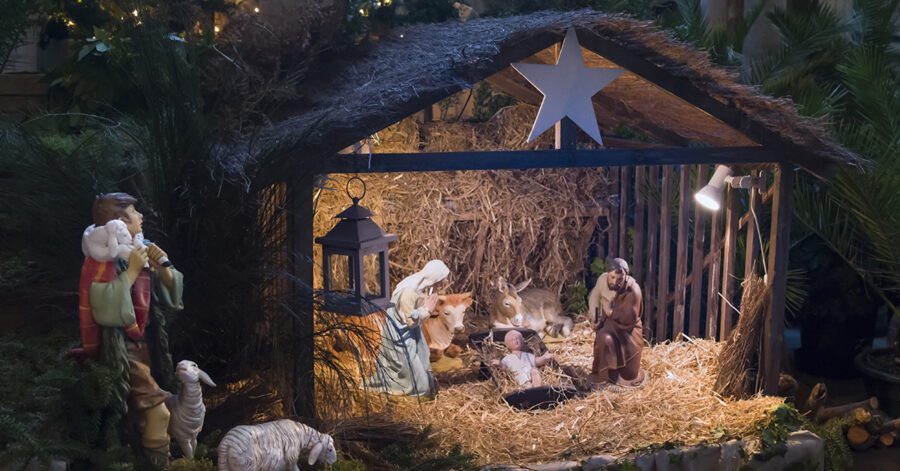Christmas is a season of celebration, reflection, and anticipation—a time to look back on the year and look ahead with hope. For our Classical Conversations families, it’s also an opportunity to pause from the rhythms of homeschooling and focus on God’s greatest gift of all: Jesus Christ.
In this Christmas message from Classical Conversations CEO Robert Bortins, we’ll explore how the stories of Noah, Abraham, and Jonah foreshadow the coming of Christ, revealing the redemptive thread woven throughout Scripture and pointing us to the true meaning of Christmas.
God’s Promise Fulfilled: Christmas Through the Lens of the Old Testament
As we approach the end of another year, we’re reminded of the journey we’ve taken with our children through the joy and challenges of learning together. The Christmas season offers us a pause to celebrate something far greater: the birth of Jesus Christ, our Lord.
Christmas is a reminder of God’s promised gift, foretold throughout the Old Testament—a second Adam who would conquer death and offer us a gift only God could give: eternal life. As we gather to exchange gifts with loved ones, we can reflect on the words from Matthew 7:11, “If you, then, though you are evil, know how to give good gifts to your children, how much more will your Father in heaven give good gifts to those who ask him!”
In this season, I find myself reflecting on the stories of Noah, Abraham, and Jonah. Each of these stories, in a unique way, points to Christ’s coming and His ultimate sacrifice for us. They remind us of the hope, redemption, and mercy that we celebrate at Christmas, all of which are fulfilled in God’s gift of Jesus.
Noah: Trusting God’s Promise Through Obedience and Faith
In Noah’s time, human wickedness had grown so pervasive that God considered ending it all. But He found one righteous man: Noah. Noah and his family were spared from death, saved by their trust in God. For years, Noah built an ark despite never having seen rain, enduring ridicule from those around him. His faith preserved humanity—not through eternal salvation, but by carrying forward the bloodline from Adam. Many see the flood as a precursor to baptism: whereas the flood brought death, baptism is a public sign of the life we gain in Christ.
Abraham: The Sacrifice That Foreshadowed God’s Ultimate Gift
Abraham’s faith was tested when God asked him to sacrifice his son, Isaac. In obedience, Abraham prepared to carry out this unimaginable command, but God provided a ram to take Isaac’s place. On that day, Isaac carried the wood for his sacrifice up the hill. Centuries later, Jesus would carry His cross to Golgotha, and this time, there would be no intervention. God allowed His Son to be sacrificed, the ultimate and final offering for the sins of the world.
Jonah: Reluctance, Redemption, and the Mercy of God’s Plan
Unlike Noah and Abraham, Jonah resisted God’s command. Sent to preach to Nineveh, Jonah ran the other way, dreading that God’s mercy would save those he felt unworthy of forgiveness. God pursued him with a storm, and when the crew reluctantly cast Jonah overboard, the storm calmed. Jonah spent three days in the belly of a great fish before being sent back to complete his mission. Despite his reluctance, his message saved Nineveh, though he himself struggled with mercy’s reach. Where Jonah hesitated, Jesus submitted wholly to God’s plan, praying, “Not my will, but yours be done.”
Celebrating God’s Promise This Christmas Season
Each of these stories—and many others throughout Scripture—points us back to God’s greatest gift we celebrate at Christmas: a Savior who willingly came to live among us, who endured sacrifice for our sake, and who offers us the gift of eternal life. Because of His victory over death, we can now share this good news with others, making Him known in the world. May these stories inspire us to recognize the love and mercy given to us through Christ this season.
Merry Christmas to you and your family. May this season be filled with hope, peace, and the joy of Christ’s love.
At Classical Conversations, we believe homeschooling is not just about academics—it’s about knowing God and making Him known. If you’re looking for a community that equips parents and students to explore God’s truth through classical Christian education, we’d love to connect with you.
Visit Classical Conversations to learn more and start your journey.





